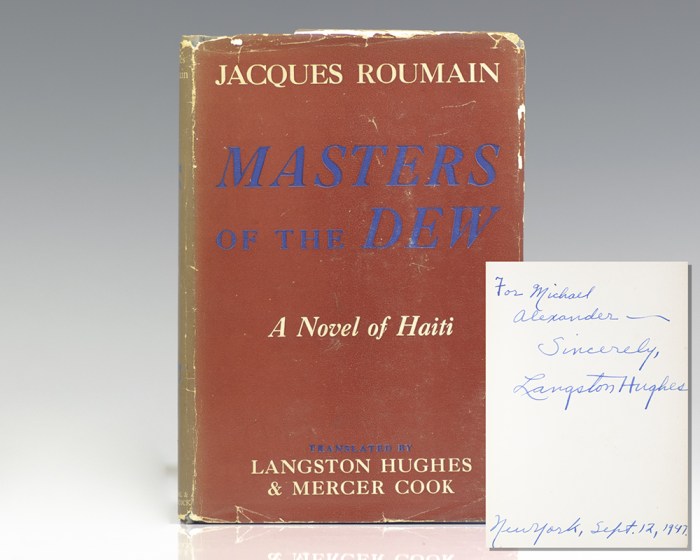Masters of the dew summary – Delve into the captivating world of “Masters of the Dew” as we unravel its literary significance, character development, and profound themes. Prepare to be enthralled by this in-depth summary that captures the essence of this remarkable novel.
This literary masterpiece explores the complexities of identity, memory, and tradition, offering a rich tapestry of symbolism and imagery. Join us as we delve into the historical and cultural context that shaped this captivating tale.
Literary Analysis of “Masters of the Dew”

The title “Masters of the Dew” holds deep significance in understanding the novel’s central themes. “Dew” represents the hope and aspirations of the young Kenyan revolutionaries, who strive to break free from colonial oppression. The “Masters” are the colonial powers and their collaborators, who seek to maintain control and suppress the people’s dreams.
Novel’s Structure and Narrative Techniques
The novel employs a non-linear narrative structure, interweaving past and present events to reveal the complexities of the characters’ lives and the historical context. The story is told through multiple perspectives, providing a rich and multifaceted understanding of the events and their impact on different individuals.
Symbolism and Motifs
Ngugi wa Thiong’o uses various symbols and motifs to convey deeper meanings and themes. The “dew” symbolizes hope, renewal, and the potential for liberation. The “rain” represents both life-giving forces and the cleansing power of revolution. The “land” represents the connection between the people and their identity, as well as the source of their oppression.
Character Development

The novel “Masters of the Dew” features a compelling cast of characters who undergo significant development throughout the narrative. The protagonist, Felipe Montero, stands out as a particularly complex and relatable figure, while the supporting characters play vital roles in shaping his journey.
Felipe Montero
Felipe Montero is a young man living in a remote Mexican village who dreams of a better life. He is intelligent and ambitious, but his dreams are stifled by the poverty and lack of opportunity that surrounds him. As the story progresses, Felipe’s experiences and interactions with others challenge his beliefs and force him to confront his own limitations.
- Transformation through Adversity:Felipe’s journey is marked by numerous hardships and setbacks. These challenges test his resolve and force him to grow in strength and resilience.
- The Power of Education:Felipe’s passion for learning serves as a catalyst for his transformation. Through his education, he gains knowledge and a broader perspective, which empowers him to question the status quo and strive for a better future.
- Internal Conflict:Felipe grapples with internal struggles throughout the novel. He is torn between his desire for a better life and his loyalty to his family and community.
Supporting Characters
The supporting characters in “Masters of the Dew” play crucial roles in Felipe’s development and the overall narrative.
- Father Anselmo:A wise and compassionate priest, Father Anselmo provides guidance and support to Felipe. He encourages Felipe’s dreams and helps him navigate the challenges he faces.
- Pedro Zamora:A wealthy landowner, Pedro Zamora represents the oppressive system that Felipe seeks to escape. His actions and beliefs highlight the social and economic inequalities that Felipe must overcome.
- Lupe:Felipe’s love interest, Lupe is a strong and independent woman. Her relationship with Felipe challenges traditional gender roles and provides him with emotional support.
Relationships and Impact
The relationships between the characters in “Masters of the Dew” are complex and dynamic. These relationships shape the characters’ motivations and actions, and they play a significant role in driving the story forward.
- Felipe and Father Anselmo:The relationship between Felipe and Father Anselmo is one of mentorship and support. Father Anselmo’s guidance helps Felipe navigate the challenges he faces and inspires him to pursue his dreams.
- Felipe and Pedro Zamora:Felipe’s relationship with Pedro Zamora is one of conflict and tension. Zamora represents the oppressive system that Felipe seeks to escape, and their interactions highlight the social and economic inequalities that Felipe must overcome.
- Felipe and Lupe:Felipe’s relationship with Lupe is one of love and support. Lupe’s strength and independence challenge traditional gender roles and provide Felipe with emotional support.
Historical and Cultural Context: Masters Of The Dew Summary

Masters of the Dewis set in a post-colonial Kenya during the 1970s, a period marked by significant social and political upheaval. The novel explores the complexities of a nation grappling with its colonial past, indigenous traditions, and the challenges of modernization.
Portrayal of Social and Political Issues
The novel delves into the social and political issues prevalent in Kenya at the time, including:
- Economic inequality: The novel depicts the stark contrast between the wealthy elite and the impoverished masses, highlighting the legacy of colonial exploitation and the challenges of post-colonial development.
- Political corruption: The novel portrays the rampant corruption within the government, which undermines trust in authority and hinders progress.
- Ethnic tensions: The novel explores the ethnic divisions that exist within Kenyan society, particularly the tensions between the Kikuyu and Luo communities.
Influence of Indigenous Traditions
Masters of the Dewincorporates elements of indigenous Kikuyu traditions, beliefs, and customs into its narrative:
- Belief in spirits and ancestors: The novel reflects the Kikuyu belief in the power of spirits and ancestors, who are seen as active participants in the lives of the living.
- Respect for nature: The novel emphasizes the importance of respecting and preserving the natural environment, a core value in Kikuyu culture.
- Communal rituals and ceremonies: The novel depicts communal rituals and ceremonies, such as the rainmaking ceremony, which are integral to Kikuyu traditions.
Themes and Symbolism

Masters of the Dewexplores profound themes that resonate deeply within its narrative. Identity, memory, and tradition emerge as central threads, interwoven through a rich tapestry of symbolism and imagery.
In Masters of the Dew, the protagonist’s quest for identity and belonging is explored through the lens of a fantastical world. The themes of self-discovery and acceptance resonate deeply, making it a compelling read. If you enjoyed Masters of the Dew, you might also find the Guess a Number 2.0 CodeHS intriguing.
This interactive coding challenge will test your problem-solving skills and further enhance your understanding of the importance of perseverance and critical thinking, just like the characters in Masters of the Dew.
Identity and Memory
The novel delves into the complex nature of identity, particularly in the context of cultural displacement and assimilation. The protagonist, Quiviga, struggles to reconcile his indigenous heritage with the dominant Anglo-American culture. Through his journey, he grapples with the loss of his language, customs, and ancestral connection.
Memory plays a crucial role in shaping identity. Quiviga’s fragmented memories of his childhood and his father’s teachings serve as fragments of his past that he holds onto dearly. These memories become a source of strength and resilience as he navigates the challenges of assimilation.
Tradition and the Natural World
Tradition is a powerful force in Masters of the Dew, particularly within the indigenous community. The novel highlights the importance of cultural practices, storytelling, and the connection to the natural world.
The natural world is deeply symbolic in the novel, representing both the continuity and fragility of tradition. The characters’ relationship with the land, animals, and seasons reflects their cultural beliefs and spiritual connection. The natural world serves as a source of nourishment, healing, and wisdom for the indigenous community.
Artistic Representation
The novel “Masters of the Dew” has been adapted into a film, allowing audiences to experience the story in a different medium. Both the novel and the film share a captivating narrative, but each medium offers unique artistic interpretations and storytelling techniques.
Design a table comparing the novel to its film adaptation.
The following table highlights the similarities and differences between the novel and its film adaptation:
| Feature | Novel | Film ||—|—|—||
*Narrative | Complex, introspective, and rich in cultural detail | Streamlined and focused on the central conflict |
|
*Characters | Multifaceted and developed through internal monologues | Simplified and portrayed through external actions |
|
*Setting | Vividly described, with a strong sense of place | Visually stunning, with a cinematic portrayal of the landscape |
|
*Tone | Meditative and reflective | Tense and suspenseful |
|
*Perspective | Multiple perspectives, providing a nuanced understanding of events | Primarily focused on the protagonist’s perspective |
Discuss the similarities and differences between the two mediums., Masters of the dew summary
The novel offers a more comprehensive and introspective experience, allowing readers to delve deeply into the characters’ thoughts and emotions. The film, on the other hand, excels in creating a visually immersive and emotionally engaging narrative. While the novel provides a broader exploration of the cultural and historical context, the film effectively conveys the central themes and conflicts.
Create a mood board or playlist that captures the atmosphere and emotions of the novel.
Mood Board:
- Images of lush landscapes and rural communities
- Photographs of traditional African clothing and rituals
- Paintings depicting the struggles and triumphs of the characters
Playlist:
- “Masters of the Dew” by Hugh Masekela
- “The Sound of Silence” by Simon & Garfunkel
- “Hallelujah” by Leonard Cohen
- “Strange Fruit” by Billie Holiday
- “The Times They Are A-Changin'” by Bob Dylan
These elements evoke the novel’s themes of identity, tradition, and the search for freedom, capturing its evocative and emotionally resonant atmosphere.
Frequently Asked Questions
What is the significance of the title “Masters of the Dew”?
The title refers to the indigenous belief that those who control the dew possess supernatural powers, symbolizing the connection between humanity and nature.
How does the novel explore the theme of identity?
The protagonist, Felipe Montero, grapples with his dual identities as a Mexican and an American, navigating the challenges of assimilation and cultural preservation.
What is the historical context of the novel?
The novel is set during the Mexican Revolution, providing a backdrop of social and political upheaval that shapes the characters’ experiences.
